Paola Mello
Process discovery on deviant traces and other stranger things
Sep 30, 2021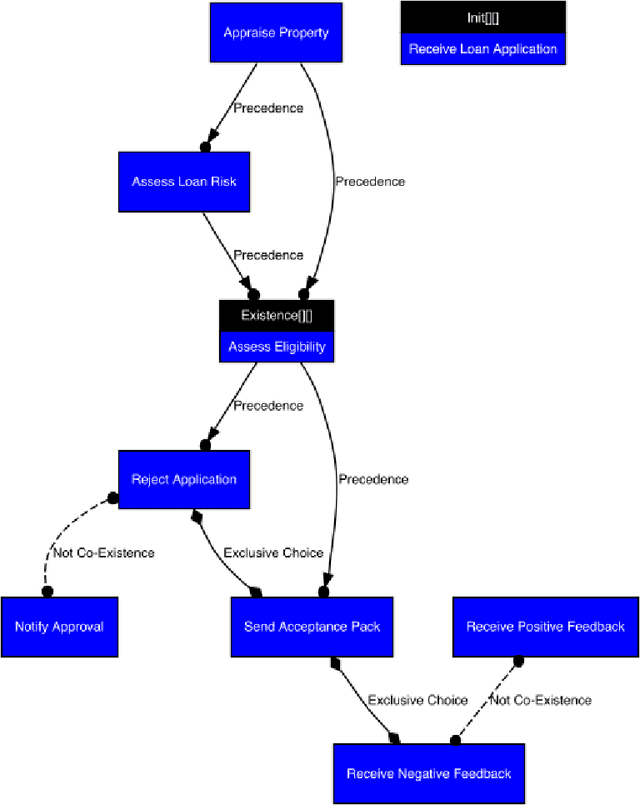

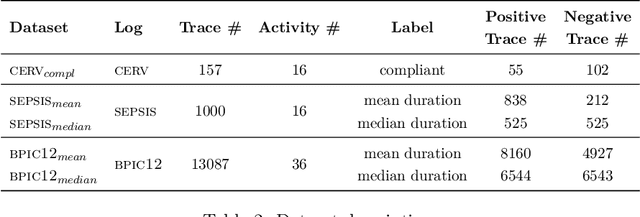

Abstract:As the need to understand and formalise business processes into a model has grown over the last years, the process discovery research field has gained more and more importance, developing two different classes of approaches to model representation: procedural and declarative. Orthogonally to this classification, the vast majority of works envisage the discovery task as a one-class supervised learning process guided by the traces that are recorded into an input log. In this work instead, we focus on declarative processes and embrace the less-popular view of process discovery as a binary supervised learning task, where the input log reports both examples of the normal system execution, and traces representing "stranger" behaviours according to the domain semantics. We therefore deepen how the valuable information brought by both these two sets can be extracted and formalised into a model that is "optimal" according to user-defined goals. Our approach, namely NegDis, is evaluated w.r.t. other relevant works in this field, and shows promising results as regards both the performance and the quality of the obtained solution.
Abducing Compliance of Incomplete Event Logs
Jun 17, 2016
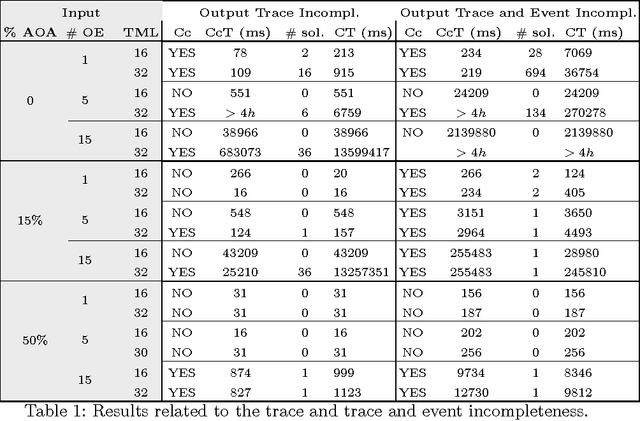
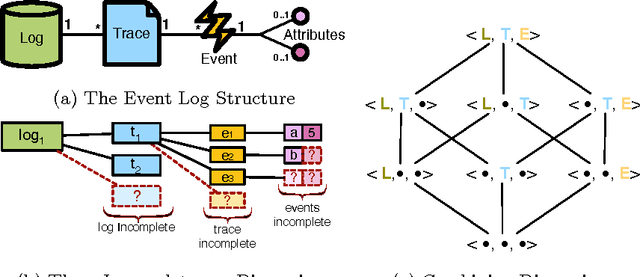
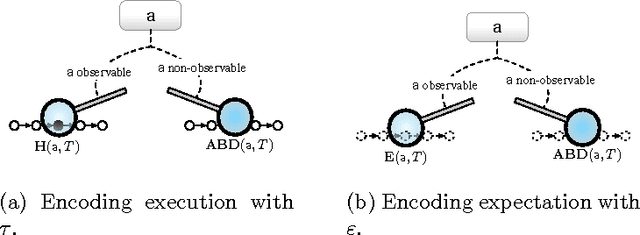
Abstract:The capability to store data about business processes execution in so-called Event Logs has brought to the diffusion of tools for the analysis of process executions and for the assessment of the goodness of a process model. Nonetheless, these tools are often very rigid in dealing with with Event Logs that include incomplete information about the process execution. Thus, while the ability of handling incomplete event data is one of the challenges mentioned in the process mining manifesto, the evaluation of compliance of an execution trace still requires an end-to-end complete trace to be performed. This paper exploits the power of abduction to provide a flexible, yet computationally effective, framework to deal with different forms of incompleteness in an Event Log. Moreover it proposes a refinement of the classical notion of compliance into strong and conditional compliance to take into account incomplete logs. Finally, performances evaluation in an experimental setting shows the feasibility of the presented approach.
A CHR-based Implementation of Known Arc-Consistency
Aug 24, 2004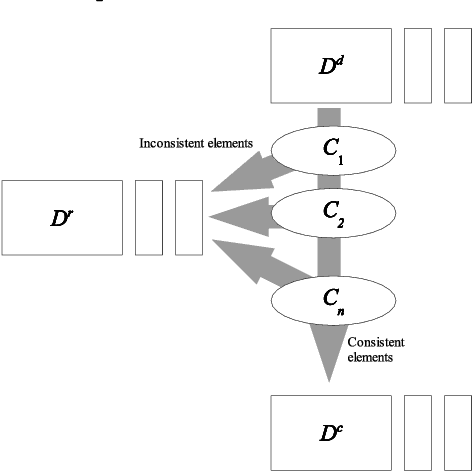
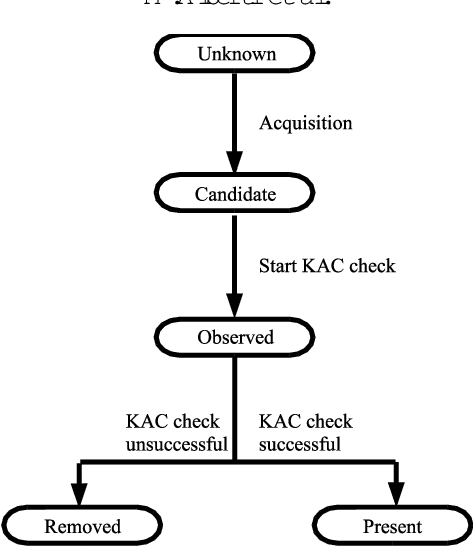
Abstract:In classical CLP(FD) systems, domains of variables are completely known at the beginning of the constraint propagation process. However, in systems interacting with an external environment, acquiring the whole domains of variables before the beginning of constraint propagation may cause waste of computation time, or even obsolescence of the acquired data at the time of use. For such cases, the Interactive Constraint Satisfaction Problem (ICSP) model has been proposed as an extension of the CSP model, to make it possible to start constraint propagation even when domains are not fully known, performing acquisition of domain elements only when necessary, and without the need for restarting the propagation after every acquisition. In this paper, we show how a solver for the two sorted CLP language, defined in previous work, to express ICSPs, has been implemented in the Constraint Handling Rules (CHR) language, a declarative language particularly suitable for high level implementation of constraint solvers.
 Add to Chrome
Add to Chrome Add to Firefox
Add to Firefox Add to Edge
Add to Edge